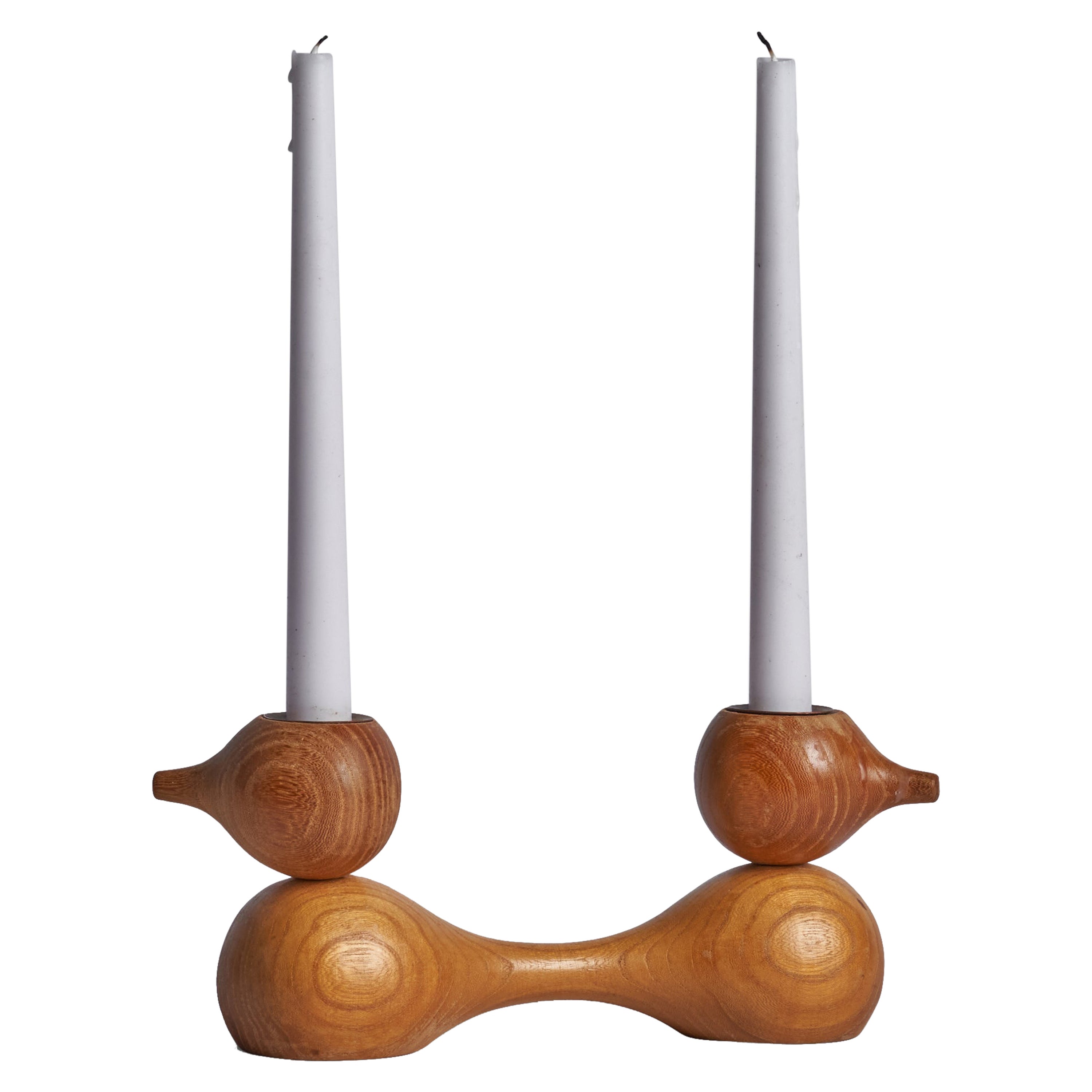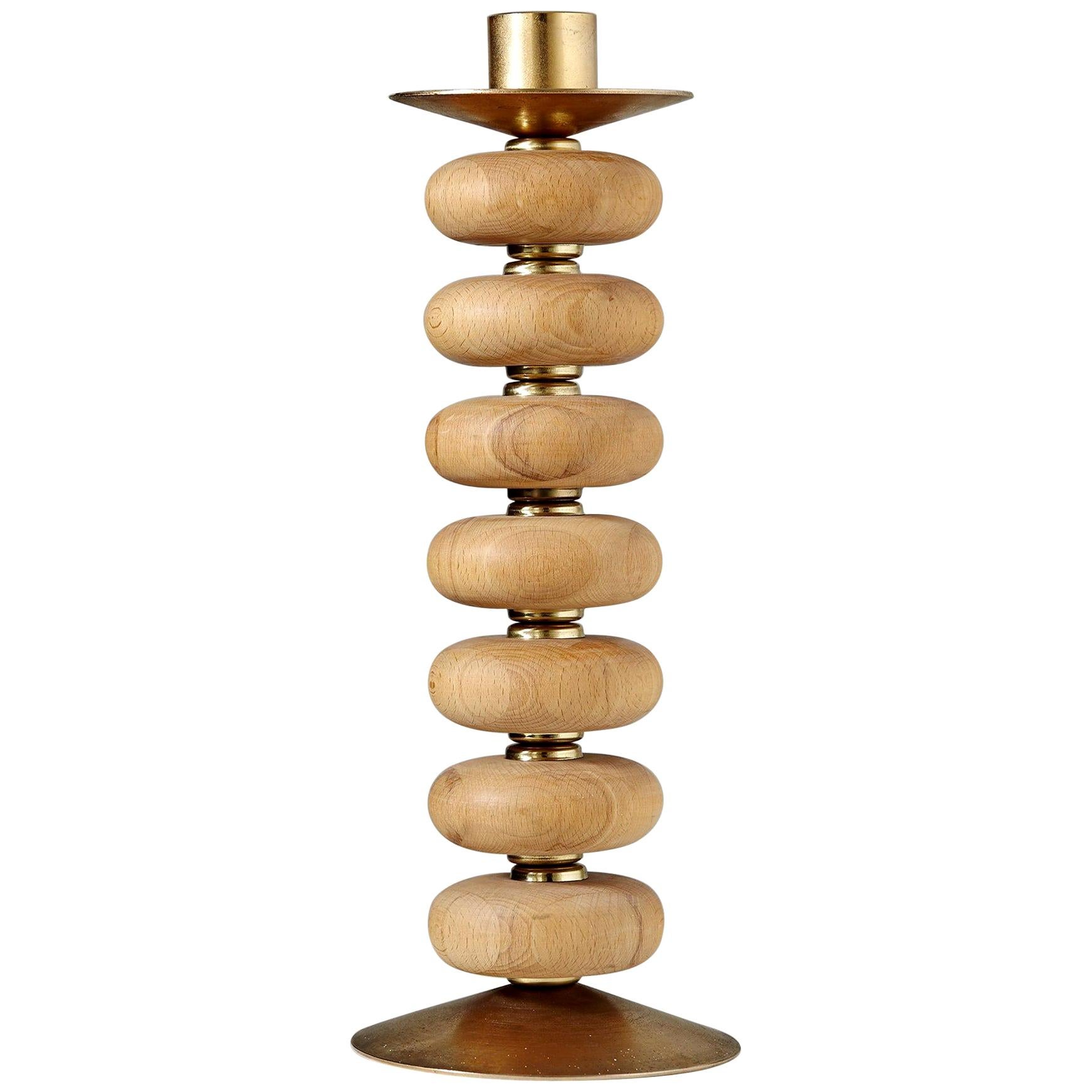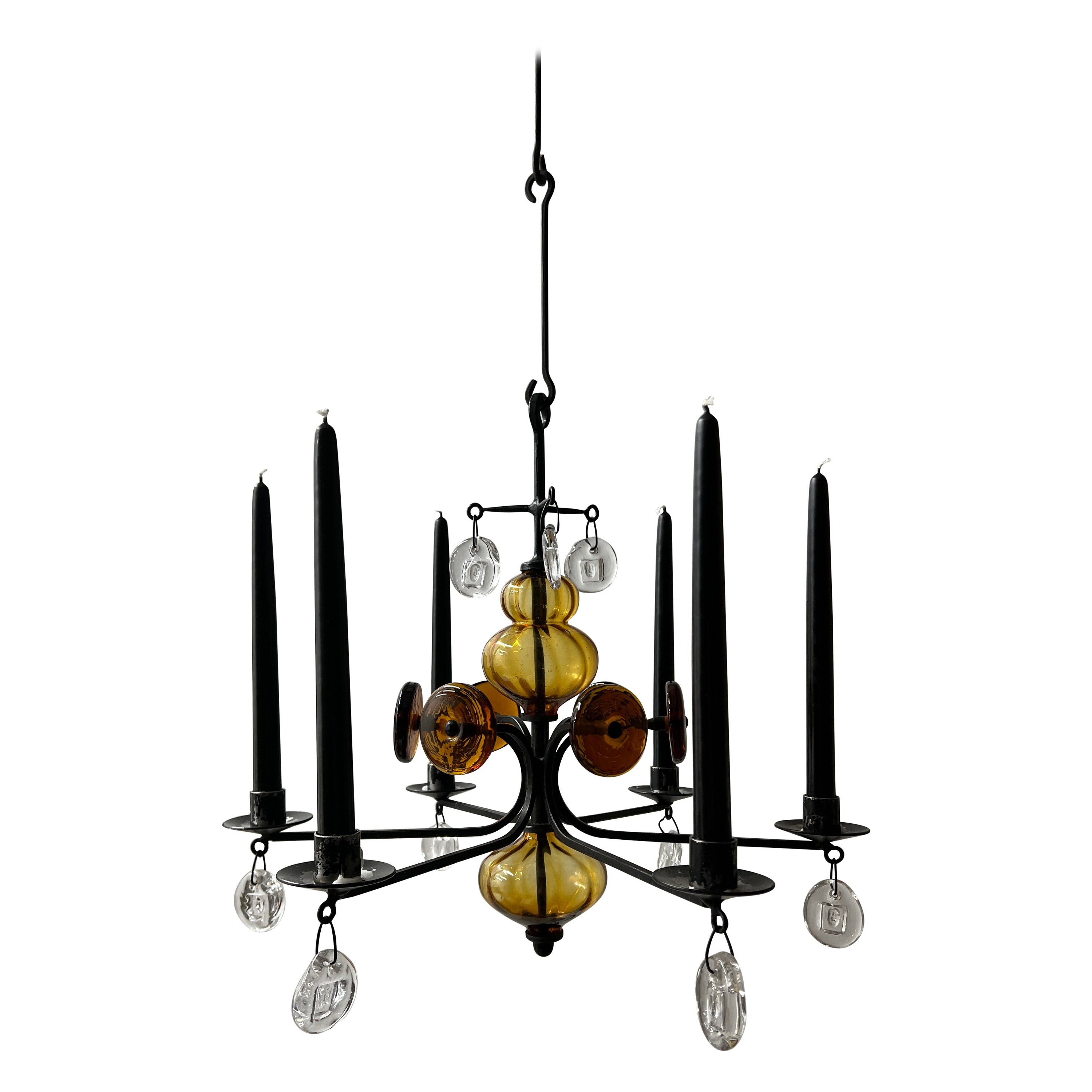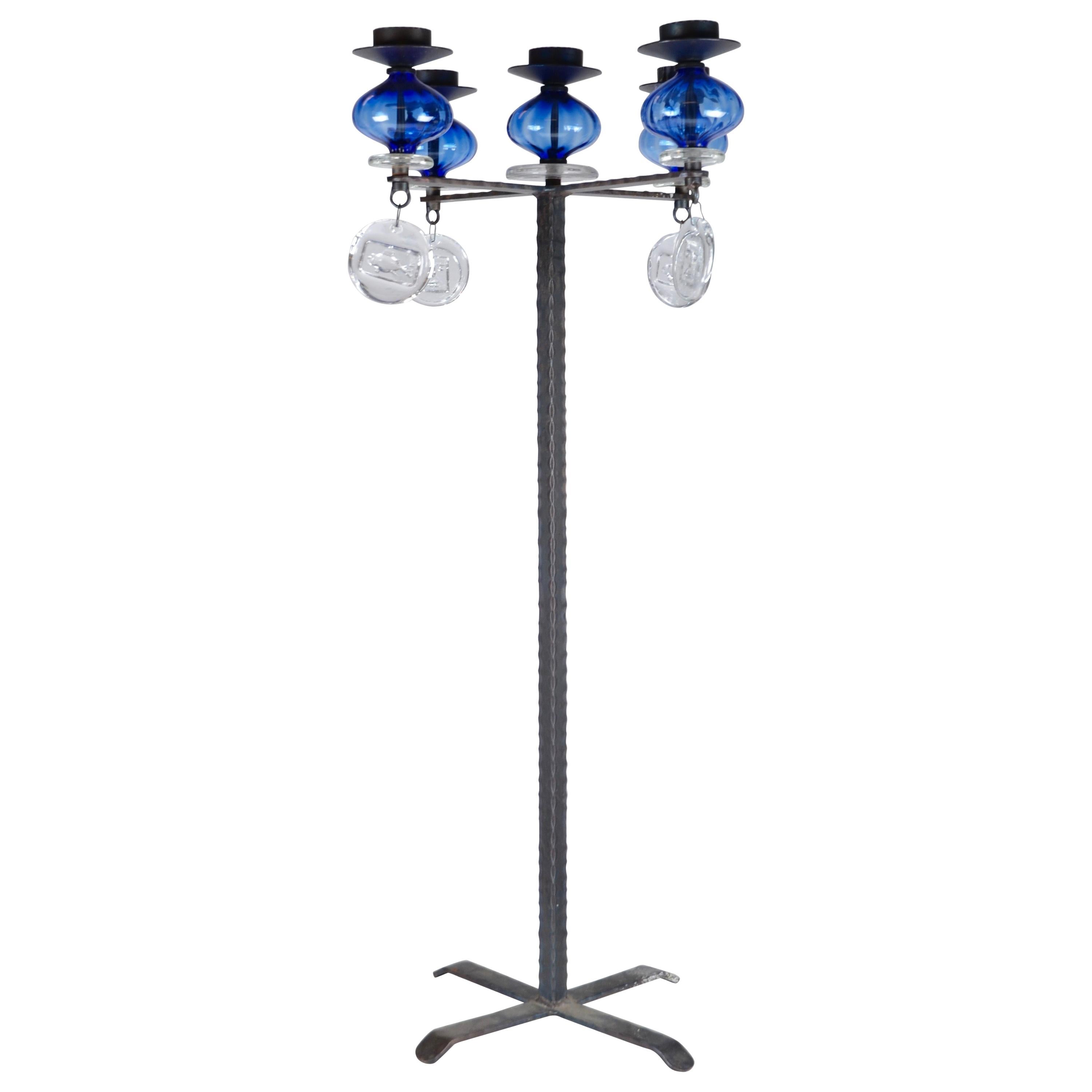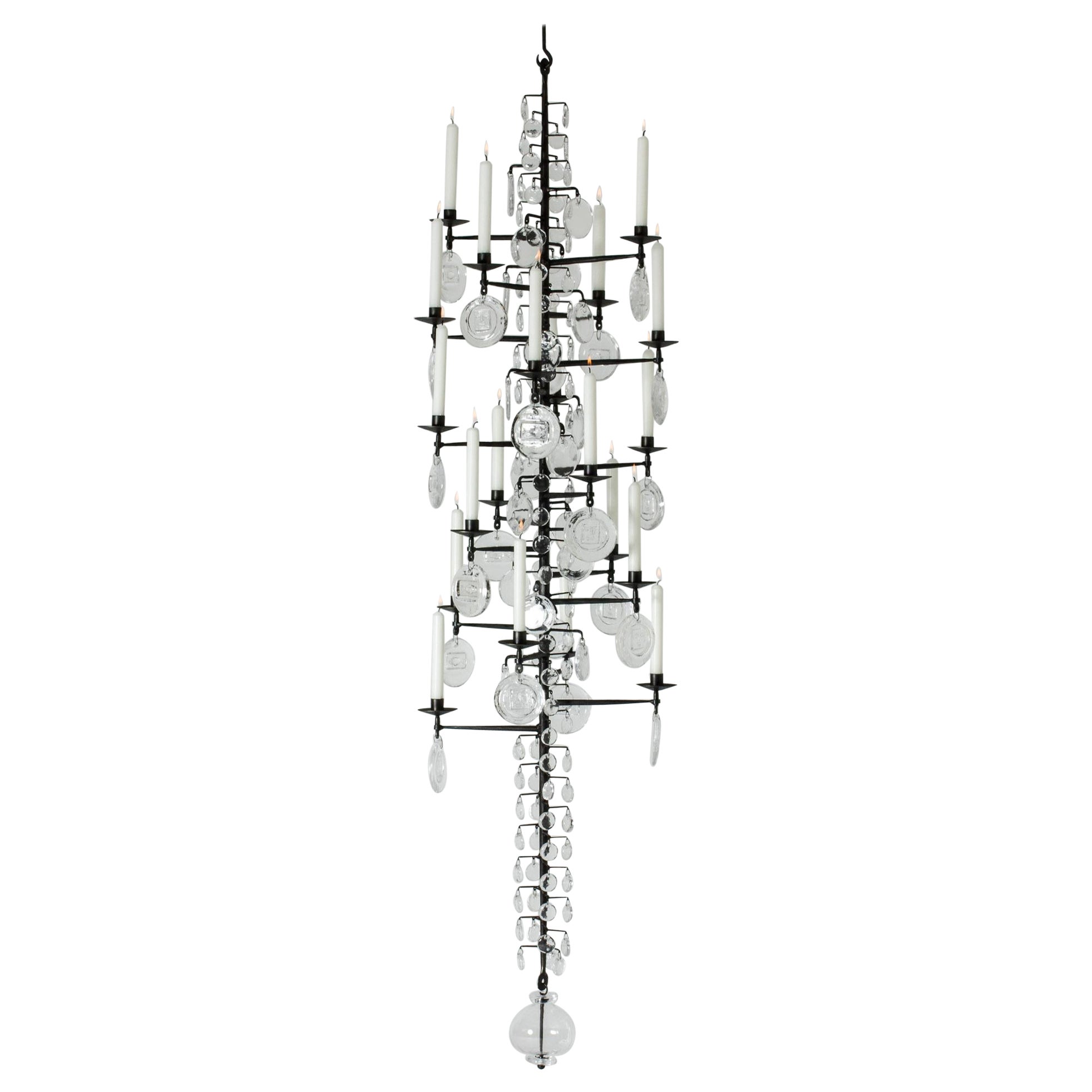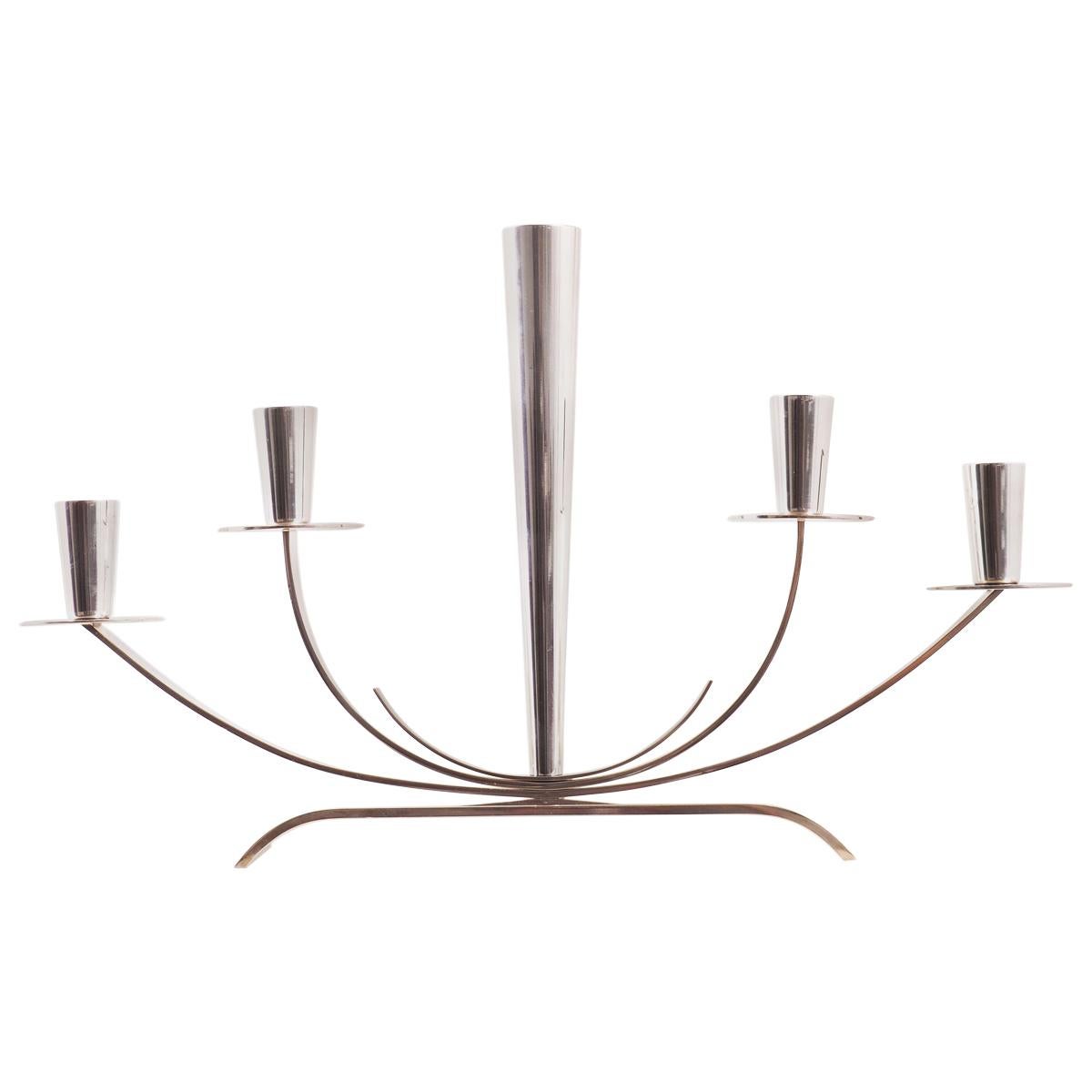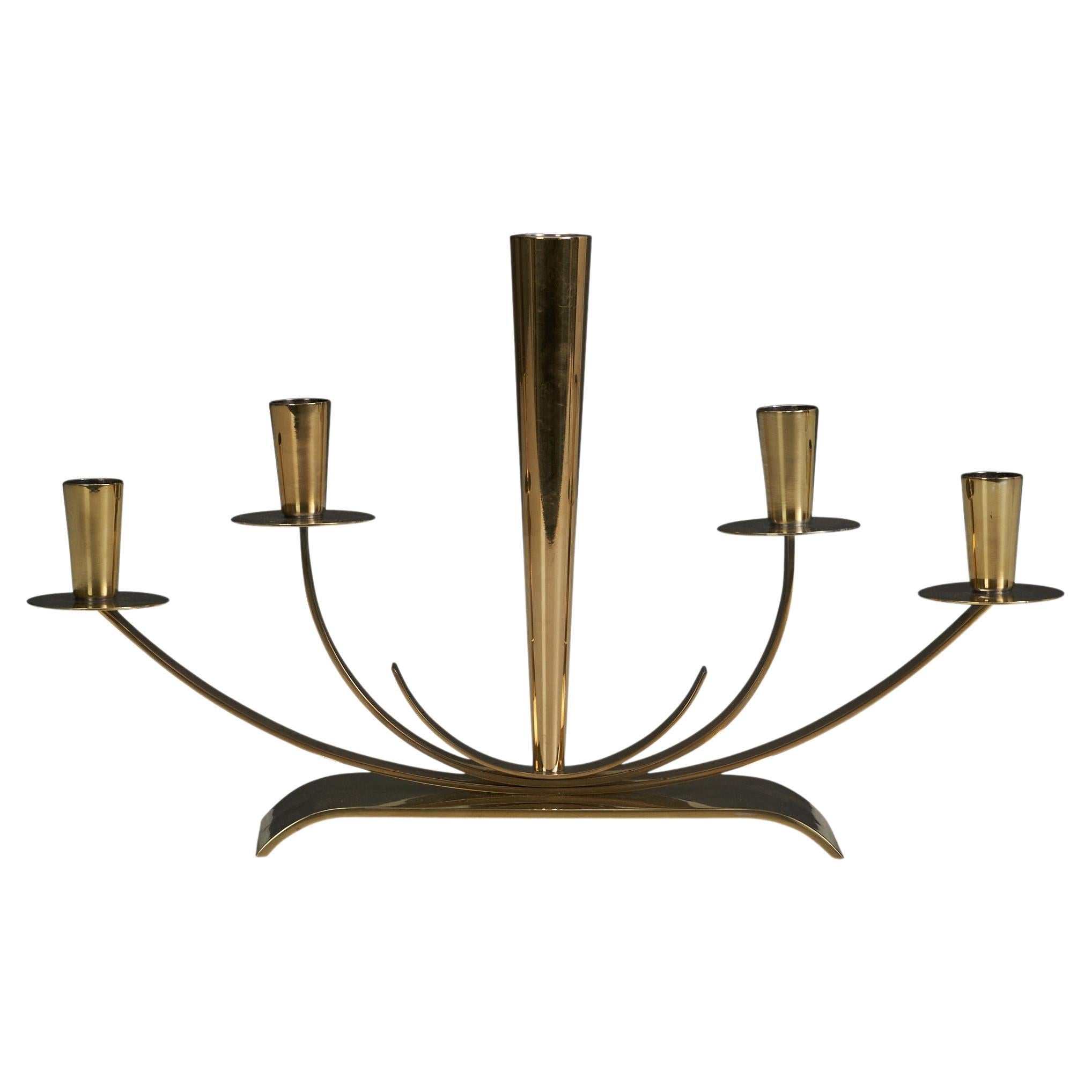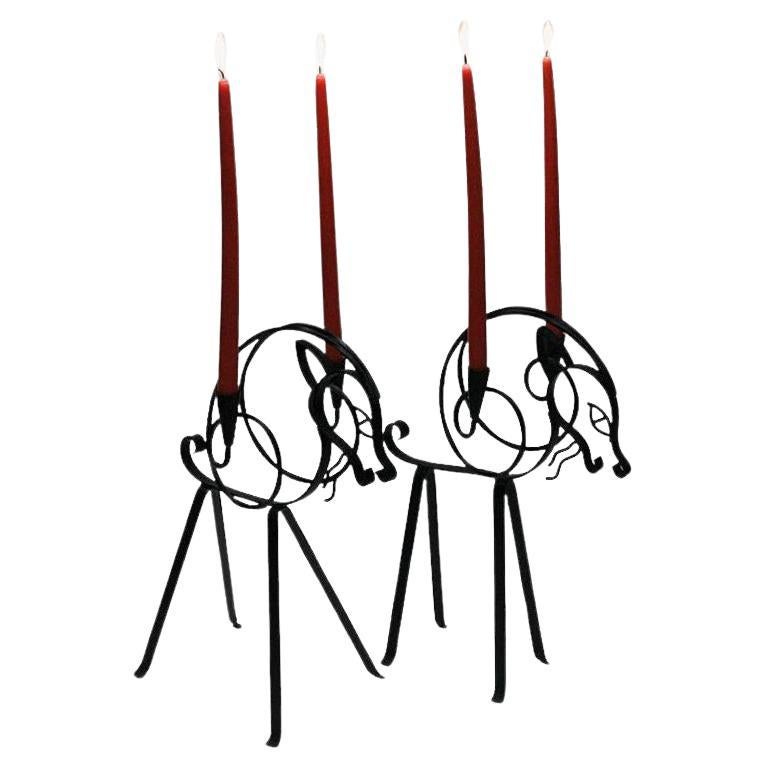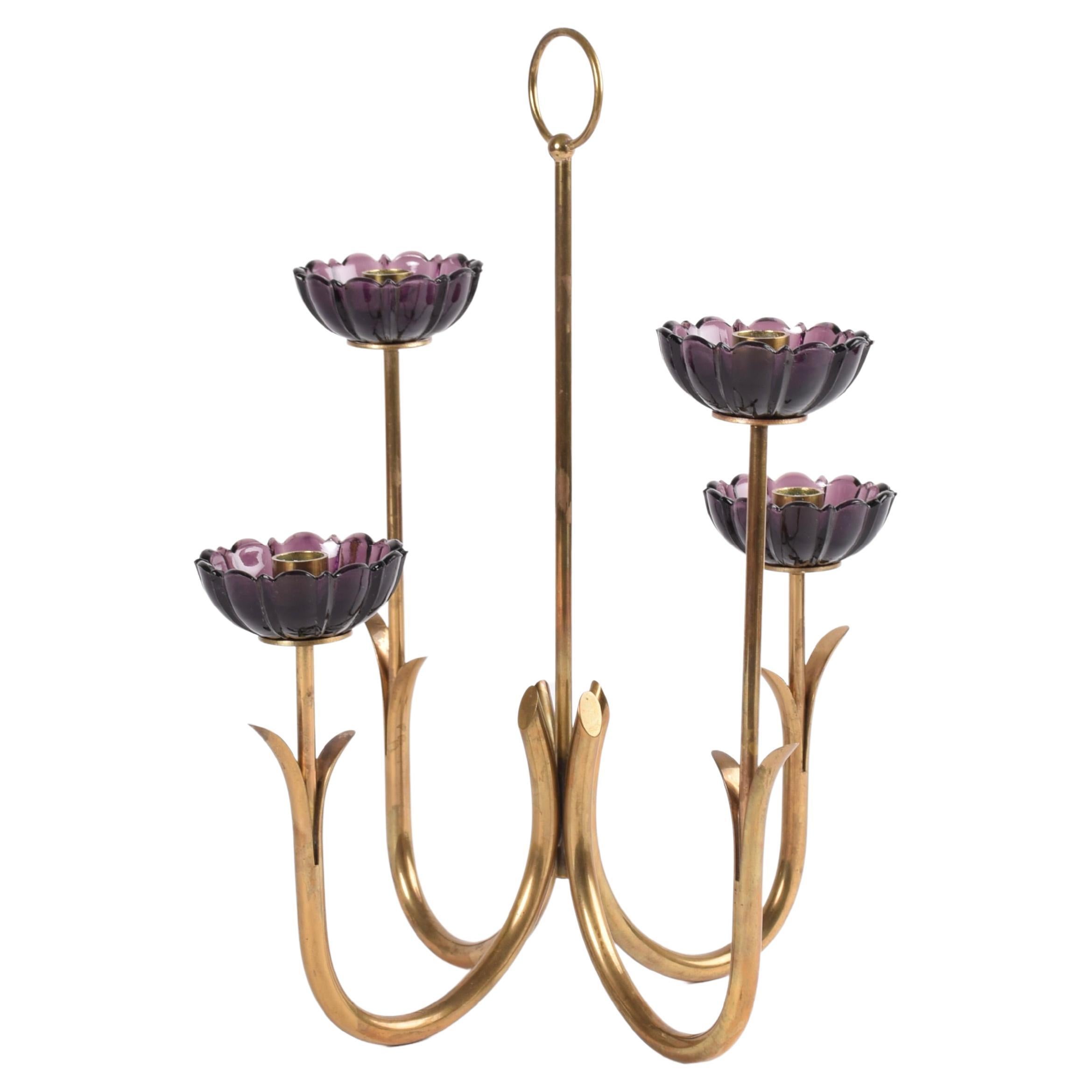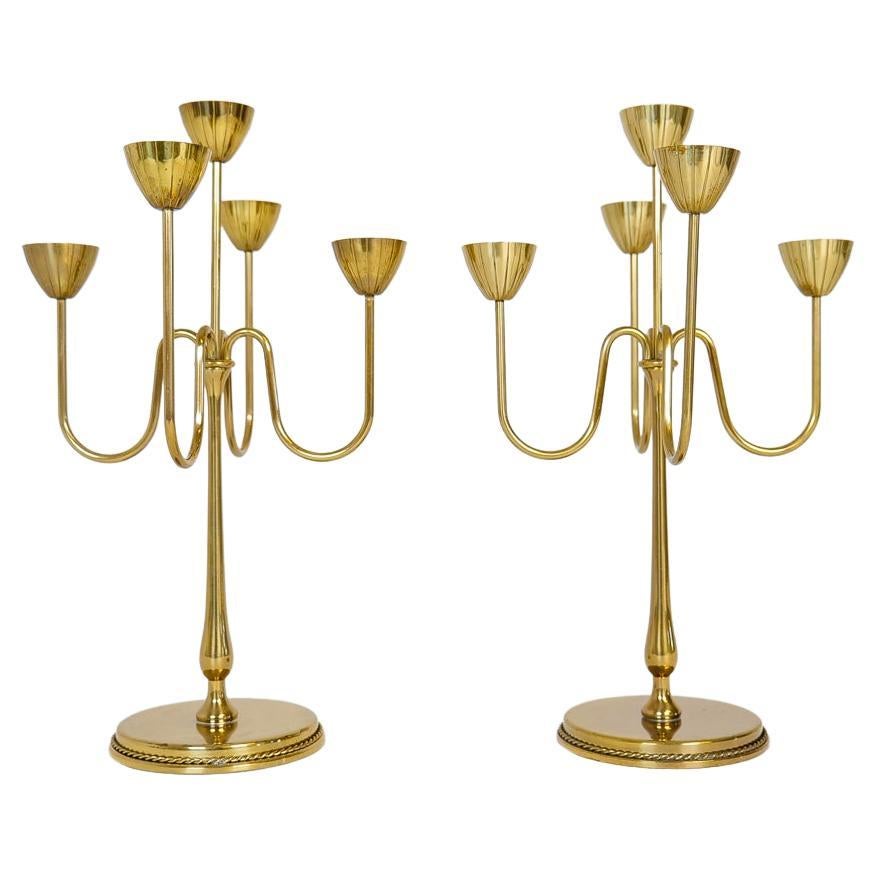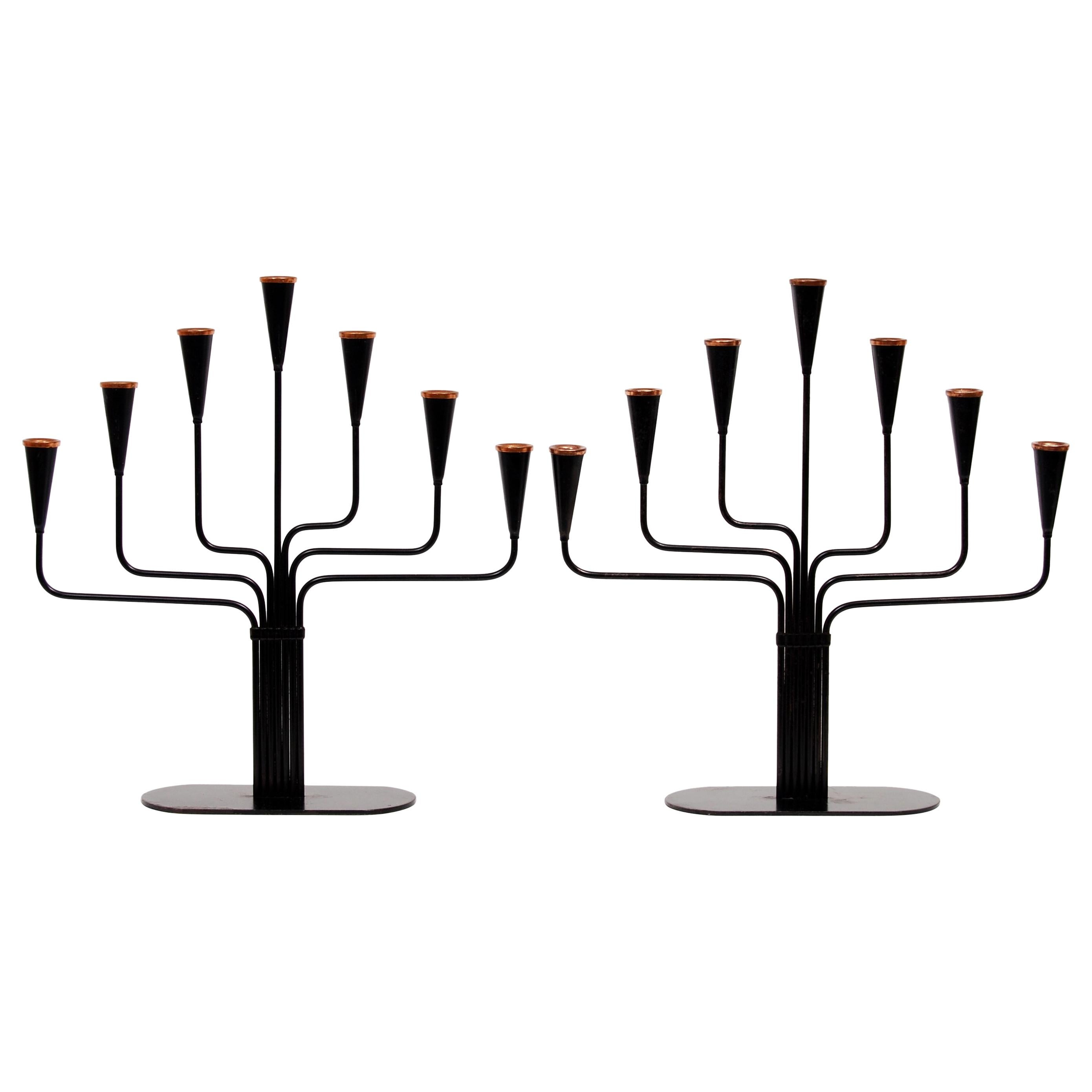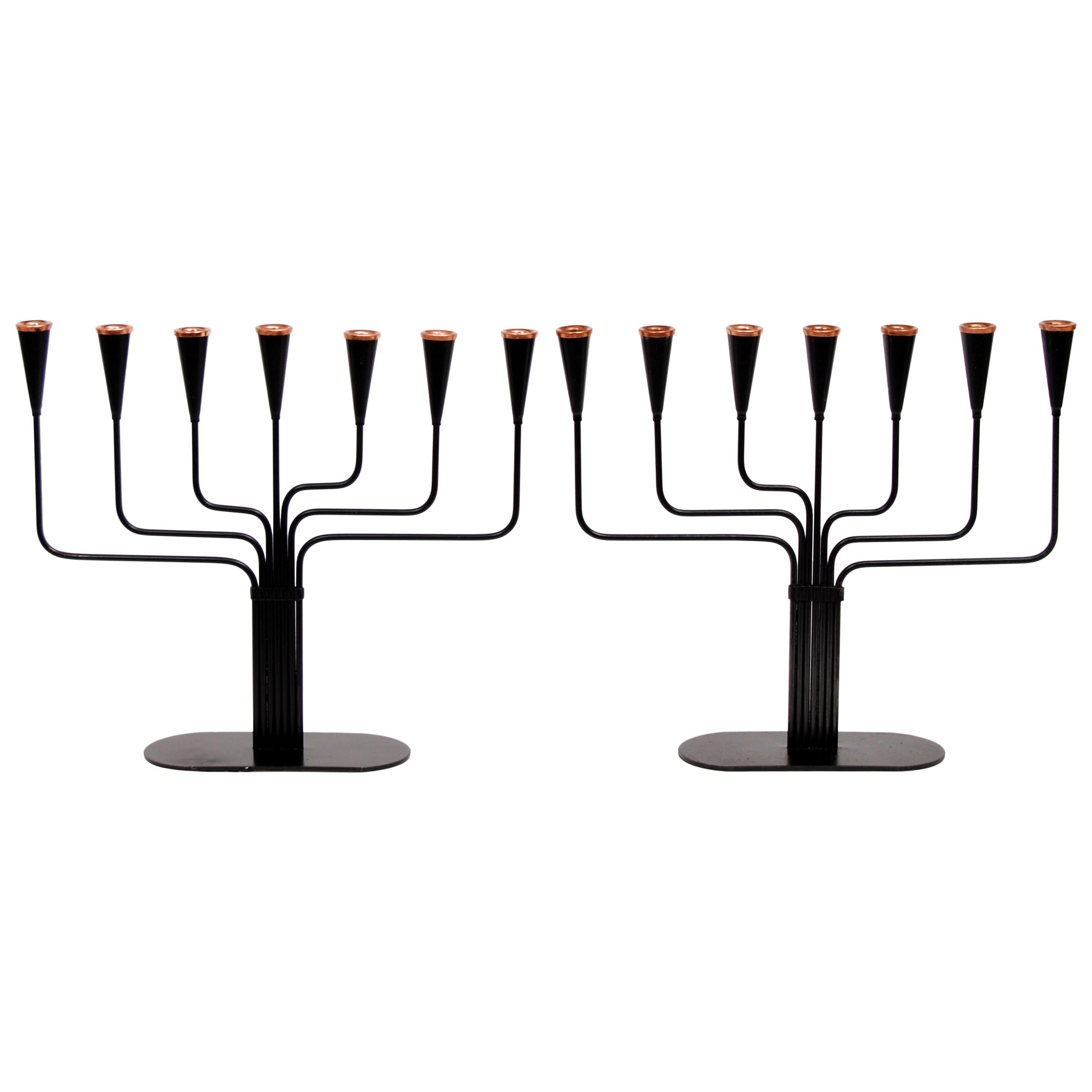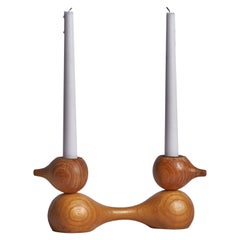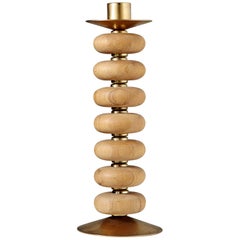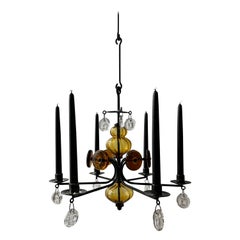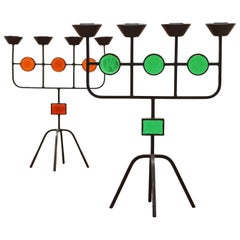
Pair of Candelabra by Erik Hoglund for Ystad Metall, Sweden, 1960s
View Similar Items
Pair of Candelabra by Erik Hoglund for Ystad Metall, Sweden, 1960s
About the Item
- Creator:Erik Höglund (Designer)
- Dimensions:Height: 13 in (33.02 cm)Width: 11.5 in (29.21 cm)Depth: 6 in (15.24 cm)
- Sold As:Set of 2
- Style:Scandinavian Modern (Of the Period)
- Materials and Techniques:
- Place of Origin:
- Period:
- Date of Manufacture:1960s
- Condition:Wear consistent with age and use.
- Seller Location:Sylacauga, AL
- Reference Number:1stDibs: LU215937206263
Erik Höglund
Swedish glass master Erik Höglund reveled in unconventional techniques and practices — the Karlskrona native once drove glassblower Ruben Hjelm out of a studio at Boda after mixing potatoes into a crucible of molten glass to determine if he could generate bubbles in the finished object. Höglund always walked his own path, and his individuality and creative spirit defines the range of decorative objects, lighting fixtures and other works in glass that he created over the years.
Höglund was born in 1932 and studied drawing and sculpting at the Swedish School of Arts. Despite his limited experience with glass, Höglund joined Boda Glassworks when the manufacturer reached out to the school for the services of a young glass artist. He taught himself how to blow glass at night and found inspiration on travels through Europe as well as in his everyday life, creating sculptures that boasted exquisite color pairings and subdued, streamlined forms. He worked at Boda for 20 years.
The Swedish National Museum purchased Höglund’s early works for an exhibition of Swedish glass art, and in 1957, Höglund’s stunning and expressive objects and sculptures earned the Danish Lunning Prize — the highest honor for an up-and-coming Scandinavian artist. He garnered international acclaim and his colorful iron and glass candleholders, candelabras and vases went on display in New York City. His work is held in the collections of the Blekinge Museum, the National Museum of Stockholm and the Cooper Hewitt, Smithsonian Design Museum.
Höglund left Boda in 1973 to establish his own smithery. He returned to glass design in the subsequent years, when the legendary innovator created richly colored and provocative works for Pukeberg, Åhus, Nový Bor and other manufacturers.
On 1stDibs, find a collection of Erik Höglund decorative objects, lighting and dinnerware.
- Erik Höglund, Candelabra, Pine, Sweden, 1960sBy BODA trä, Erik HöglundLocated in High Point, NCA pine candelabra designed by Erik Höglund and produced by Boda Trä, Sweden, 1960s. fits 0.8” diameter candlesCategory
Vintage 1960s Swedish Mid-Century Modern Candelabras
MaterialsPine
- Candlestick, Designed by Erik Höglund for Boda, Sweden, 1960sBy Erik HöglundLocated in Stockholm, SECandlestick, designed by Erik Höglund for Boda, Sweden, 1960s. Erik Höglund was a Swedish artist known for his experimentative work with amber glass. His glass bottles, chandeliers, and candelabras are characterized by their delicate, geometric designs. At age 25, Höglund became the youngest artist to ever receive the Lunning Prize, awarded annually to up-and-coming Scandinavian designers. He created rustic designs that allowed for everyday, multiple uses of glass, allowing it to be both functional and aesthetic...Category
Vintage 1960s Swedish Scandinavian Modern Candlesticks
MaterialsBrass
- Art Glass Chandelier by Erik Hoglund for Boda, Sweden, 1960sBy Erik Höglund, BodaLocated in Rīga, LVVintage art glass chandelier designed by Erik Höglund for Boda in the 1970s. Measurements: H (full / chandelier) 105 / 40 cm, D 46 cm.Category
Vintage 1970s Swedish Scandinavian Modern Candle Lamps
MaterialsMetal
- Erik Höglund, Candelabra, Four-Armed, Kosta Boda, 1960s-1970sBy Erik Höglund, Kosta BodaLocated in Stockholm, SEA four-armed floor candelabra, designed by Erik Höglund for Kosta Boda. Made in iron, blue glass and glass with motifs. 1960s-1970s.Category
Mid-20th Century Swedish Scandinavian Modern Candelabras
MaterialsIron
- Midcentury Candle Chandelier, Erik Höglund, Boda, Sweden, 1960sBy Erik Höglund, BodaLocated in Stockholm, SEStunning, oversized candle chandelier by Erik Höglund, made from wrought iron and glass. The long, rustic iron frame is adorned with different sized glass medallions that look like large rain drops on a bare tree. The biggest medallions are embossed with patterns of fish. Height 190 + 37 cm. Erik Höglund was one of Sweden’s foremost glass artists, whose innovative designs and glass making techniques revolutionized the scene of both art glass and serve ware in the 1950s. His bold and personal designs gave him and the glassworks Boda worldwide acclaim. Erik Höglund is considered the most influential Swedish glass artist of the 1950s and 1960s, alongside Ingeborg Lundin. Höglund was admitted to the prestigious school Konstfack at the age of 16, first studying to become an art teacher, but later changing to the sculptor’s line. He rebelled against many of what he considered to be conventional ideas at the school, and was almost expelled. His nonconformism would follow him through his career, aiding him in following his own path and repeatedly breaking new ground. Erik Höglund started working at Boda glassworks in 1953. At the time, Boda focused on producing high-quality serve ware in ethereal, cut-glass designs under the direction of Fritz Kallenberg. Höglund brought new perspectives and ideas, experimenting with the glass mass to give it a bubbly look and introducing colored glass and irregular finishes. These ideas were in direct opposition to the traditional ideas of what quality glass is, and Höglund was initially met with skepticism. He created rustic designs that allowed for everyday, multiple uses of glass, allowing it to be both functional and aesthetic. This down-to-earth idea appealed to both critics and collectors, although it took some years into the 1950s to win over the general public. In 1955, Erik Höglund’s glass was presented at the H55 Exhibition and one of his vases, whilst considered scandalous due to its suggestive decor, was purchased by the Swedish king. In 1957 he was awarded the Lunning Prize, its until then youngest awardee. Following that, his glass was exhibited in the Georg Jensen store on 5th Avenue in New York, making Erik Höglund and Boda world renowned. Erik Höglund was a master of all artistic trades. His glass murals were an important part of his artistic deed, leading to many assignments of public decorations, around Sweden in churches, schools, banks and other public places, as well as in the United States and Australia. In the early 1960s he also started working with wrought iron, making chandeliers and candelabras, combined with glass or unadorned, that became hugely popular. Boda opened its own smithy, Boda Smide, to satisfy the demand. Höglund also worked with wood, creating rustic and playful children’s furniture, candle holders and beds. Höglund left Boda in 1973 and worked with public assignments, often in collaboration with architects and his wife Ingrid Höglund. He continued to work with glass throughout the years for Pukeberg, Lindshammar and Strömbergshyttan glass works. He was was an incredibly productive artist, creating 150 public works from 1956 into the 1990s. Life cycles, sports and acrobatics, everyday life and family relationships were recurring sources of inspiration. Among his most notable work is the decoration of Johannelund Church in Linköping, which consisted of murals, glass sections, furnishing and the church silver...Category
Vintage 1960s Swedish Scandinavian Modern Candelabras
MaterialsWrought Iron
- Candelabra from Ystad Metall in SwedenBy Ystad-MetallLocated in Goteborg, SESilver plated candelabra from Ystad Metall, Sweden. This heavy piece is in mint condition.Category
Vintage 1940s Swedish Scandinavian Modern Candelabras
